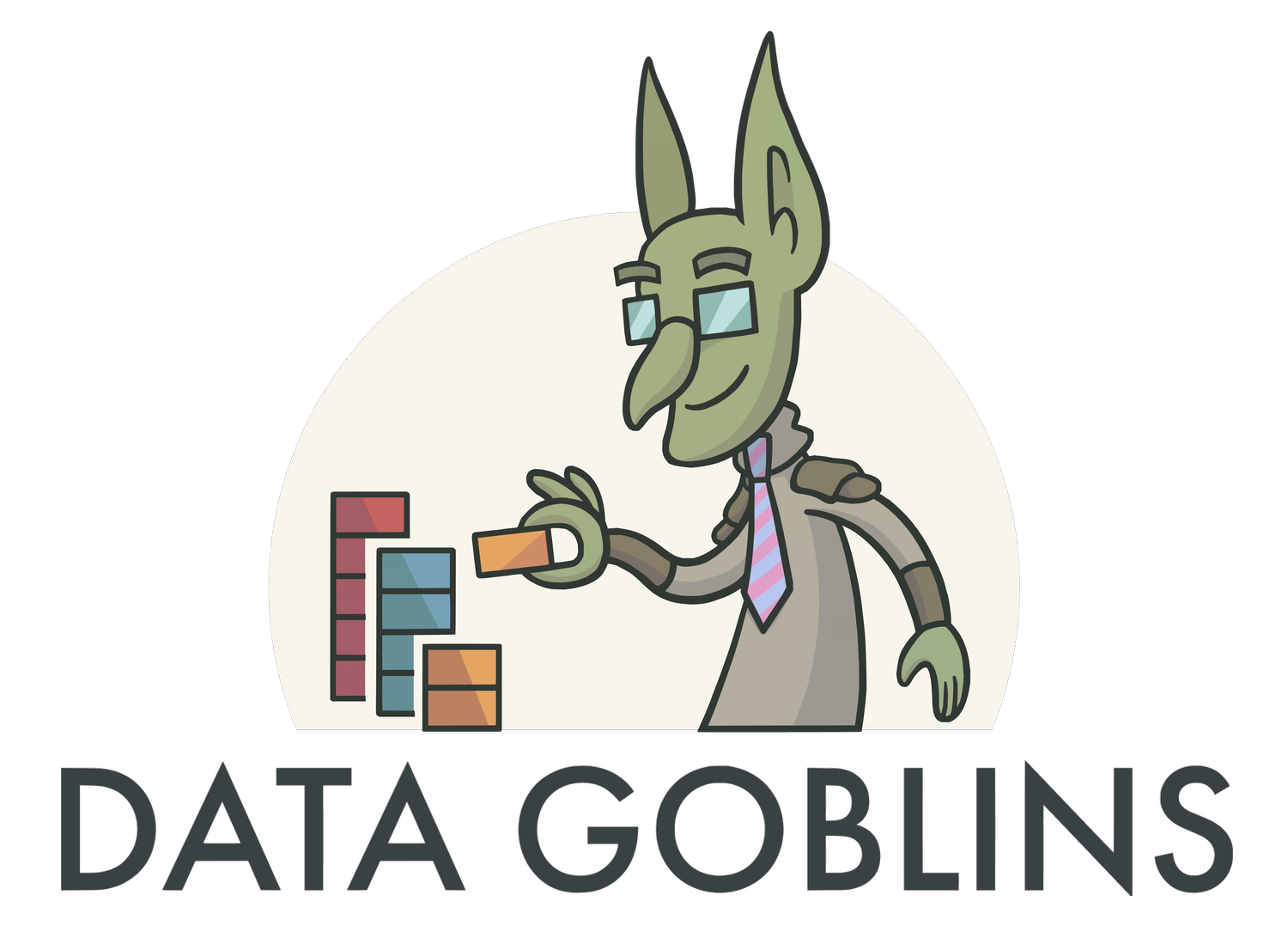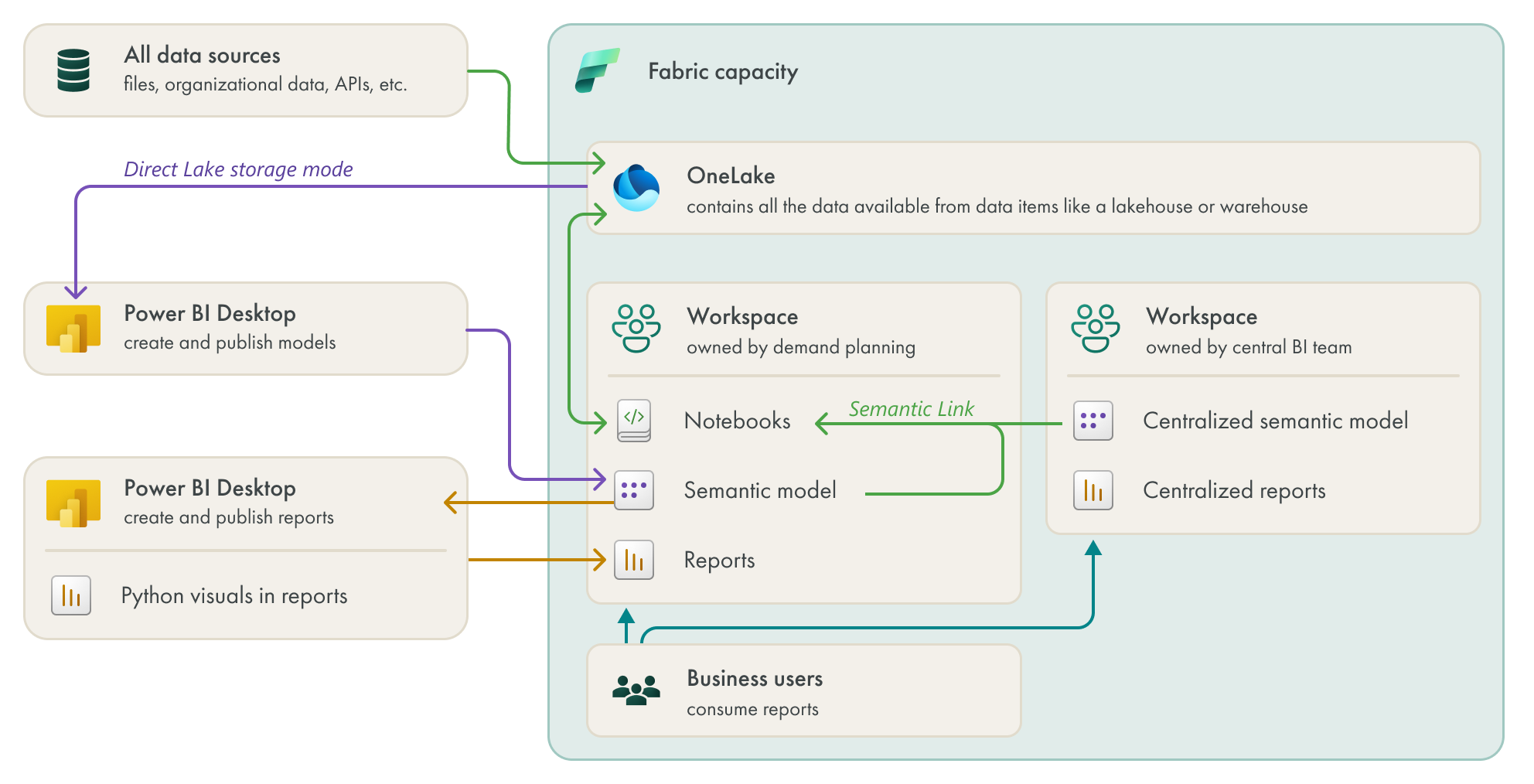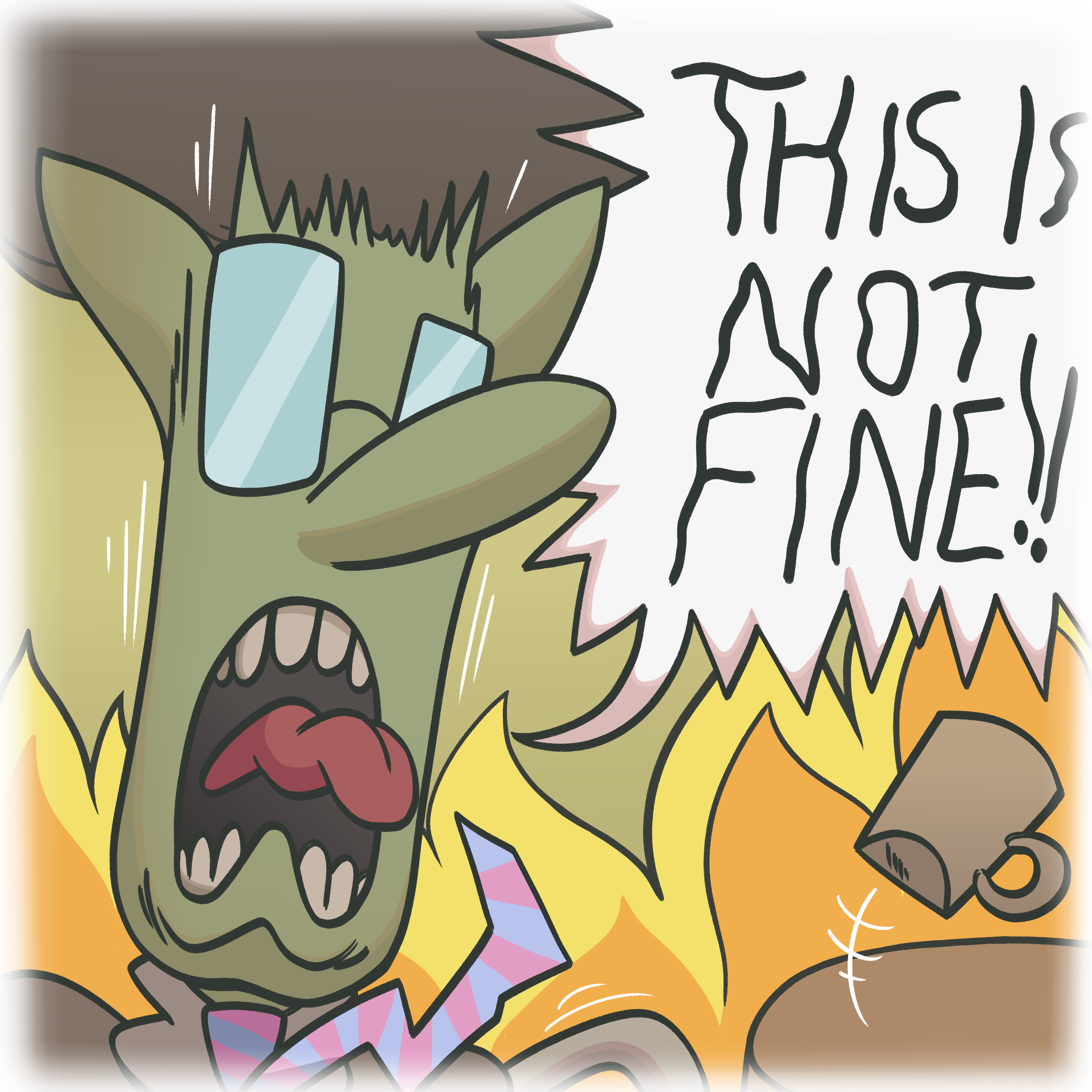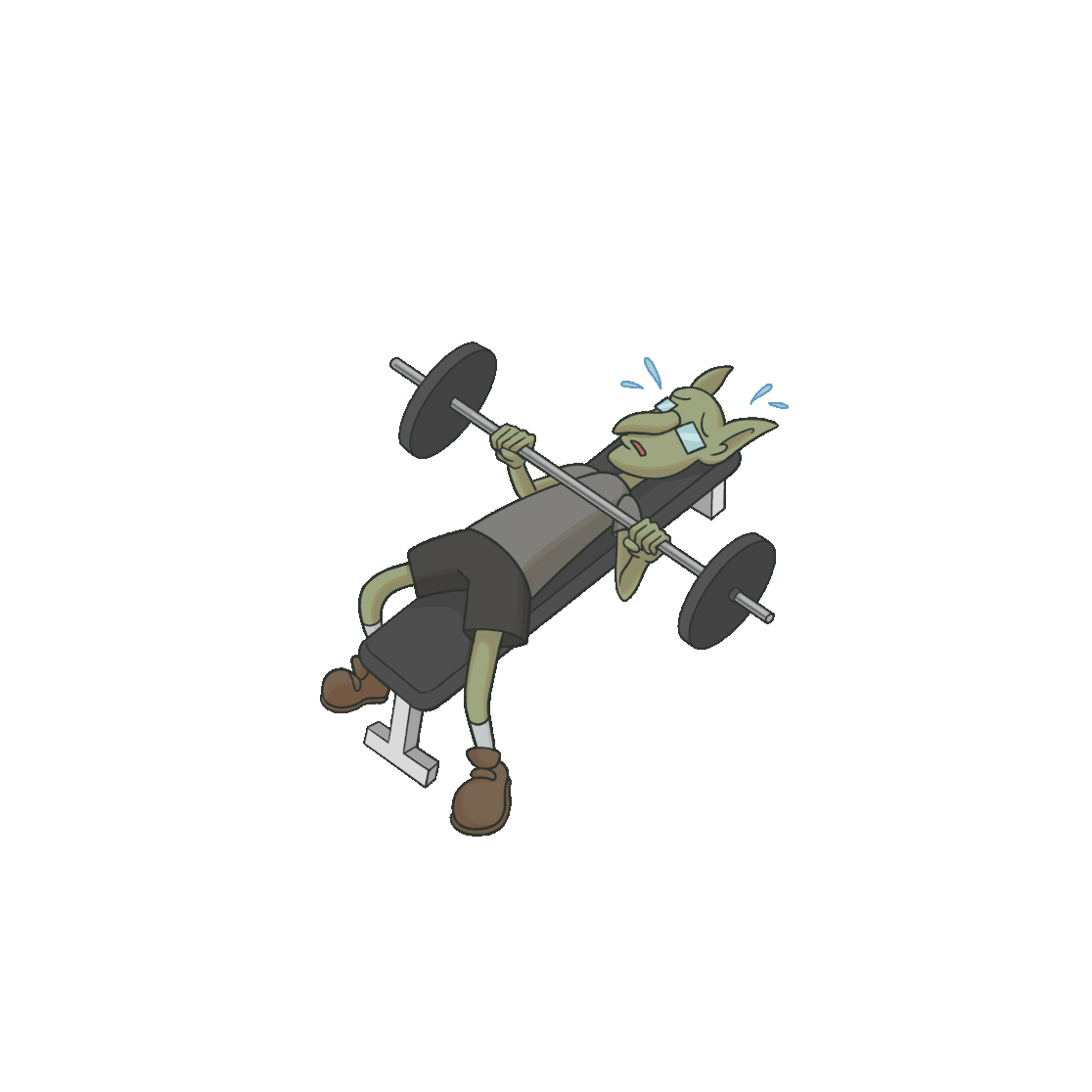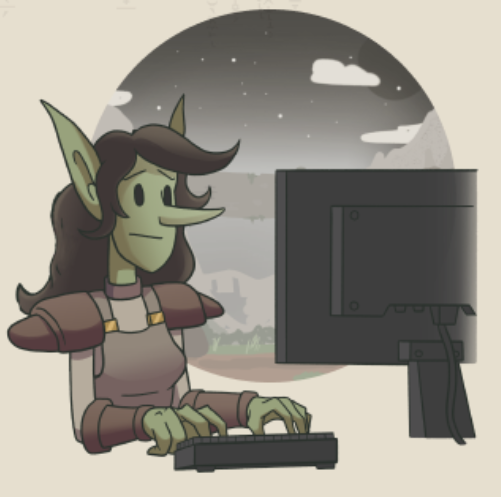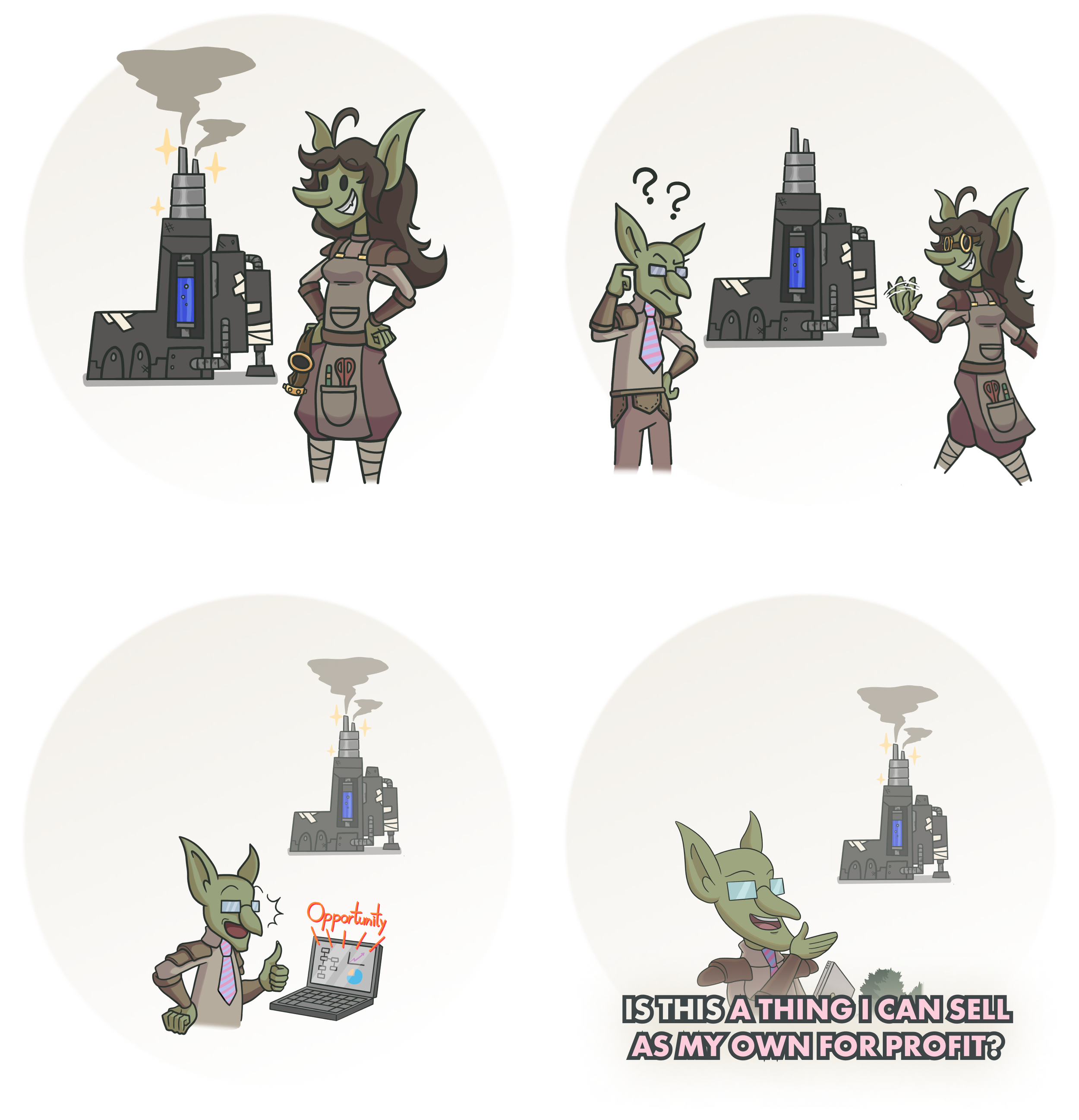An update about articles on data-goblins.com
AN UPDATE FROM DATA-GOBLINS.COM
…about written articles or videos about Power BI/Fabric.
This update only pertains to new Power BI/Fabric articles, and not my other activities/content, here.
Starting in 2025 and until further notice, I’ll no longer publish articles on data-goblins.com about Power BI or Fabric. Instead, I’ll focus on producing quality articles and videos for sqlbi and Tabular Editor to help you make useful things in Power BI and Fabric. Unrelated to this decision, my contributions to the Microsoft documentation (like the adoption roadmap, implementation planning, and others) will also cease in March 2025.
My goal with this site and these articles has never been to grow an audience, build a brand, sell you anything, or advance my career. I’ve only ever written these articles because it’s been intrinsically rewarding to help people make useful stuff in Power BI. Maybe I resume writing and publishing articles about Power BI on data-goblins.com in the hypothetical future. But for now, that’s not the plan. However, I will continue to maintain and update existing articles or references, like my checklists.
In this blog post, if you’re interested, I share some personal reflections on 2024, why I’ve made the decision to stop writing these articles, and hint at some of my future plans—not all of which have to do with Fabric or Power BI. This is a personal post (and if I’m honest, it’s a bit self-indulgent), so there’s nothing to learn here.
Just a bit of introspection on my part.
LOOKING BACK ON 2024
There was a lot that I planned or wanted to do this year, but didn’t. Partly because I was probably over-ambitious and set some unrealistic expectations for myself. But mainly because our family moved and we ended up dealing with a lot of unexpected issues with our new house and childcare, which ultimately led to me losing about est. ±20% of my productive hours. Yikes! I won’t bore you with the details.
But if you’ve feel like some real estate Schadenfreude here’s select images of how incompetent the contractors were:
A few images of the state of the ‘finished’ house. There were also live wires protruding from walls, etc. If you’re thinking “I’d never tolerate that,” don’t worry… It’s handled now; blemishes, bruises, bleeding, and bones.
There’s a few personal things from this year that I reflect upon, below, if you’re interested.
With sqlbi, I’ve started doing more video content, which you can see on the YouTube channel. This was quite an adjustment; filming myself and talking to a camera doesn’t come naturally to me. While I sit in front of the camera, I tend to fixate on making no factual errors, and I feel very self-conscious about how I look and sound. Because of this, videos initially took me a very long time to make. Also, editing videos also takes so long! But I’ll hopefully have a solution for that, soon…
However, it’s gotten more natural over time. I’m also letting my personality leak through a little bit with the stingers at the end. I can see this efficiency measured, too; the first video I filmed took 86 takes (how many times I start recording, even if I throw out the take) before I was content with the result. The most recent video, I needed only 4 or 5.
This was an obvious measure of how easy it was for me to make videos, so I tracked the number of takes for each article video we’ve published to date. I’m pretty happy with the evolution, which you can see, below:
Evolution of Nr. takes to make a sqlbi video over time:
With stuff on YouTube, like my own articles, I’m not trying to chase the algorithm, grow a following, or get tonnes of views (I don’t even really know how many views the videos get, to be honest… I don’t check). I’m just trying to make quality, useful, and informative material. I don’t really care if people find it entertaining, or not. If Marco and Alberto are happy, then I’m happy!
It is funny when people give me unsolicited advice assuming that I want to “make it as a channel” or “become a YouTube personality”. My guy, I’ve got a voice that resembles Ben Stein and the facial expression range of Wednesday Addams. Hardly a winning combo.
Regardless, I’ve learned a lot about making videos and why or when video is the best medium to teach something or get a message across. I’ll probably be making many more videos next year! Unless our house—you know—falls apart, or something (knock on wood).
This year, I probably used Figma and Excalidraw more than Power BI Desktop. It’s been incredible how much Figma has elevated my design work, not just for diagrams and articles, but… well… everything. The productivity enhancements from Figma are a big reason why I’ve been able to produce so many things for different areas.
While working with Microsoft on the guidance documentation, I also defined a style to depict workflows, processes, and architectures. This style first was present in the revamped Power BI usage scenario diagrams that I made, but I also used it in a lot of Microsoft guidance documentation articles, my own articles, and beyond (like the Fabric security whitepaper and Direct Lake documentation). My contributions to the Microsoft documentation end in March 2025, but I’m happy with what we’ve done in the last two years.
An example of the “nested container style” to explain processes, as I used it in a previous article.
It’s been nice to see this style adopted throughout the community; on an almost daily basis I see blog posts and presentations where people have co-opted this style for their own content. That’s really cool! I’ve been working on some resources to help people make their own diagrams in this style, too, quickly and without needing design skills. It’s quite a low priority, but I’ll probably finish and share it sometime next year.
I’ve also started getting a little involved in the Figma community, which has been interesting. I’ve noticed that Figma has an extremely good content funnel for users to learn new things or discover and adopt new features. I might explain this more later, but Microsoft could really learn a lot by paying attention to how Figma drives adoption of their tooling. It’s incredibly effective. Honestly, if Microsoft adopted this approach for Power BI or Fabric, I think it would be way more effective for getting people to adopt and use new platforms, tools, and features, compared to what they do now, which is typically just some dense announcements, uncoordinated posts from individuals or commercial groups in the community (or Microsoft employees), and (maybe) a learn article or training (once the feature is in GA).
Instead, I’d like to see Microsoft take the Figma approach with Power BI and Fabric:
Features and tools having clear names that make obvious what they do (and not things like “translytic apps” or “AI skills”… what the heck???). An example is visual calculations = a calculation in a visual.
“Discovery” short-form content that clearly shows (and not tells) what the feature is, how it works, who it’s for, and what problem it solves for them.
Example files that let you play with the feature or tool for yourself, which are preloaded or easily accessible, and very hand-hold-ey.
Deeper content like blog posts or walkthroughs (from Microsoft or coordinated with MVPs) that has a consistent style and format, and explains in more detail the use-cases and how to get started with the feature, including limitations/considerations.
Deep-dive content like documentation or end-to-end tutorials that go through all the nuances of each feature.
Personally, I think this would be a lot more effective and a good way to manage how so many people feel so overwhelmed by the volume and pace of new information/announcements. I bet it’d probably increase adoption/effectiveness and usage of these tools and features.
Man, this is such a messy topic. I’m tempted to just not write anything, but this took up so much of my mental energy this year, I just can’t not mention it — if anything but for the catharsis.
We’ve all been inundated with a firehose of AI messaging and marketing from what seems like every software company on the planet, this year. This messaging has definitely not been very nuanced.
Bonk as depicted in the “this is fine” comic by KC Green.
Some negative thoughts I have about AI right now:
The unlicensed collection and use of other people’s intellectual property in training data feels unethical. I feel that these companies need to be held accountable for this, and laws need to be put in place mandating that data must be licensed to use for training AI models and tools, and outlawing the use of “dark patterns” like introducing user opt-out (to grab the data before they can explicitly consent).
The impact of AI on climate change needs to be more widely shared and addressed. It feels like we’ve deprioritized climate goals because dollar signs are in the eyes. Unsurprising? No. Concerning? Yes.
Many of the AI tools seem reckless in how easy it is to generate misinformation and support bad actors. It’s made SEO a mess, too. I think no amount of responsible AI is holding this back; the dark forest is growing at an alarming rate… even in niche communities like Power BI.
The community that’s formed around the generative AI tools has developed a certain culture that I find uncomfortable and… gross. I find that they’re so dismissive of legitimate concerns and criticism about these tools, and so many individuals seem so personally invested in them. They favor these grandiose statements without any nuance and “david vs. goliath” language, implying how AI makes human intelligence and expertise irrelevant. They’re so cavalier and reckless, and they almost seem to foam at the mouth whenever a new AI development threatens further disruption; like they’re cheering on the chaos. They talk about this “era of AI changing life and work for everyone, forever” like it’s inevitable and already happened (AI has changed a lot, but the impact and adoption is currently overstated). It feels like a cult.
Organizations seem very dishonest about the messaging regarding what AI tools can and can’t do, how accurate they are, and the impact they can have on productivity and cost.
I’m concerned about decision-makers making budget and headcount decisions based on the claims they believe about how effective and powerful AI tools really are.
I’m concerned about the impact of AI tools on professional creatives. I think that we’re not doing enough to protect these professions, and it’s neither correct or fair to say that the disruption is normal and these individuals should start using AI tools to be competitive. I feel that human authorship and creativity needs to be more explicitly valued… by the organizations making these tools, the people using them, and our legislation. The disruption of AI tools on creative industries doesn’t feel like an evolution comparable to DSLRs/film or photoshop/darkrooms, but more like a cultural attack on what it means to make and consume art. I think that AI can have its place in the creative process and the creation of art, but we can’t tolerate replacement or displacement of human artists, especially when the work of these artists was used without their consent or license to train the AI tools they compete with.
I’m very concerned about the societal impact of AI on education. From what I see and hear, it seems like a mess and teachers/professors are not getting any support, guidance, or resources on how to deal with it. It’s a complex issue, but man, as a father— that shit is scaring me.
I’m also very concerned about the societal impact of AI in general. The numbers and anecdotes about character.ai are… alarming. So are similar numbers and anecdotes about people running AI-generated influencer accounts or teens using AI to bully peers. Again… scary shit.
Some positive thoughts I have about AI right now:
It can enable a lot of people to get more things done, more quickly, when you correctly match scenarios to their use-cases.
It can lower the learning curve for many areas, if used appropriately. I’ve been doing work in programming languages I wouldn’t dream of touching a few years ago; I know this would likely be a lot more difficult without AI tools.
AI tools and models are helping to solve many new problems in various scientific areas, which is exciting. I’m optimistic that a lot of -omics fields (genomics, transcriptomics, proteomics) in biomedicine and basic research will see some cool innovations in the coming years.
The atmosphere around AI tools and the individuals and organizations who endorse them feels very inauthentic. BUT… I find more and more people craving authenticity in the products, services, and content they consume. I value authenticity a lot, so I actually like this. I expect we’ll see more demand for analog and authentic experiences in the near future. However, I hope AI doesn’t help people exploit this. I hope AI will make people better at detecting and dismissing fraudulent attempts at authenticity by tools, individuals, and organizations.
If you look at the numbers (real numbers, not these manufactured user studies) about adoption, cost, and revenue with AI tools, there’s a picture starting to come clear — this current state isn’t sustainable. Either some magical change pivot things around, or the house of cards will have to topple to a more reasonable equilibrium focused on practical value, rather than golden promises and “AGI around the corner”.
So yeah… my net sentiment of generative AI is… pretty negative. I’m not “against” AI tools or technology, but I’m certainly pretty goddamned concerned. And I really, really wish that the people with big voices talking about these tools and technology would give these concerns more air. I really, really, really wish that organizations like Microsoft, OpenAI, Google, and Meta would realistically address these concerns, too. But they probably won’t.
Bonk as depicted from the “this is not fine” comic by the cartoonist KC Green.
At the beginning of this year, I struggled a lot with my physical and mental health.
Mentally, I’ve found it difficult to stay in touch and connect with people in the Power BI community this year, mostly online and at conferences. Partly because I work full-time from home, and partly because… I don’t know. I just didn’t feel like it. It feels very difficult to make authentic connections with people when you only engage online, and when your shared common interests revolve around a commercial product... I also just regularly felt—y’know—like shit.
Physically, I had a lot of issues with back pain, knee pain, and recurring illness. I think most of you who work many hours a day in front of a PC can relate… especially if you’ve got kids. These two things—mental and physical health—really made it hard for me to just get shit done. To plan, and execute on those plans.
But around September-October, I kind of had an epiphany, and some ideas about how to address this shit. I spent a lot of spare time researching, reading, and working out a way to get things more sorted; to get healthier and happier. I was able to leverage a lot of what I know from my PhD in Biomedical Sciences and interest in psychology and fitness… I really feel like I figured something out, here. At least something that works for me.
Since December, my back/knee pain is already minimal, or completely gone. I feel mentally and physically the best I’ve been in years, and I feel more engaged with my values and with the people around me who share them. It’s incredible how fast things are going. I’ve got some numbers and data to back this up, too, which is exciting. I have so much to say about this… the approach I took and the tools I used to get my shit together here feels really helpful… re-usable… helpful, for others. It feels like anyone could do this. I can’t stop thinking about it… it’s been exciting, and hopeful. But there’s still a lot of work to do. More on this, later…
ARTICLES ABOUT POWER BI/FABRIC ON THIS SITE
As mentioned above, I’ll stop publishing articles about Power BI and Fabric on data-goblins.com until further notice. Mainly, so that I can focus my time and effort on producing more and better content with sqlbi and Tabular Editor. However, there are some other reasons, which I list below:
I no longer get energy from writing articles about Fabric and Power BI in my spare time.
There are many reasons for this, but the short summary is that:
I’ve written a lot for Microsoft, sqlbi, and Tabular Editor this year, already. Roughly estimated, I’ve produced over ~1,000 pages and 800 diagrams, icons, or illustrations this year, alone. That’s a lot, yo.
I’m somewhat exhausted and overwhelmed by the volume and pace of updates in Fabric. It’s now insufficient to research and write quality, trustworthy content in my spare time, alone.
I’m disappointed by the focus on Copilot and lack of honesty in how poorly it’s been performing in real-world scenarios, both from Microsoft and from community members who make Copilot content. The messaging and tactics to drive commercial interest and use of Copilot / AI tools makes me uncomfortable and frustrated; it doesn’t align with my personal and professional values.
I’m disappointed (but unsurprised) in how much AI-generated content I’m coming across, and how AI is leading to the devaluation of the long-form types of content that I prefer and enjoy writing. That’s demotivated me to throw more pages onto the corpus, donating my spare time.
I’m not okay with tools or people using my intellectual property unlicensed to develop their own commercial products, services, or content. This includes AI tools using my articles in their training data, and people using my content or ideas unattributed in their consulting offerings, their paid training courses, or their content funnels for marketing. Just because content is publicly available doesn’t mean the author is consenting for you to use it or copy it without attribution, particularly for commercial gain.
If you want to use my content, diagrams, or ideas… just ask. Learn how to properly cite other people/content. Don’t use other people’s IP in your own commercial shit… come on.
Intentionally and ironically based on the “I made this” and “is this a pidgeon” meme formats.
When I write these articles, I put a lot of time into them. On average, an article takes me several days to research, prepare, review, and publish. I usually have them peer-reviewed, create several conceptual diagrams and commision illustrations, and write the actual text. I invest so much in this process because I like it, and because the integrity and quality of my work is a priority. I want the content to be helpful and interesting for other people, so I released it for free. If I do resume writing these articles, I’ll likely do so as part of a paid subscription that distributes monthly articles in a zine or newsletter.
I want to prioritize my effort on producing articles and videos with sqlbi and Tabular Editor. This content will continue my mission to help people make useful things with their data. We’re working on some very cool stuff that I strongly feel will help a lot of people, so stay tuned.
However, I also want time and energy to focus on things outside of data. My evenings and weekends are times when I don’t want to write articles or think about Power BI, anymore. I want to prioritize family, but after this year, I want to make an impact in areas outside of data and analytics. So, I’ve started work on some “secret projects”.
LOOKING ON TO 2025
There’s a lot of stuff that I’m going to be working on, next year. I don’t expect to finish or share information about all of it, but slowly, incrementally, I hope to reveal more as time goes on.
I’m working on some exciting things with sqlbi and with Tabular Editor. I think these things will be useful for a lot of people. Sorry, no spoilers!
I’m working on several projects that have nothing to do with Fabric or Power BI. Some of these projects I’ve already been working on for multiple years, others I’ve only started recently. They’re currently prioritized after the Fabric and Power BI projects that I mention, above, so I don’t yet have a timeline on when I’ll finish them. Although, you can expect to hear more next summer-ish about the first one
However, I can give you some vague hints for these projects, below; they’re presented in no order, and some hints belong to the same project. Any guesses? 😉 Keep an eye out for more hints in the next 7 months…
Hint #1
Hint #2
Hint #3
Hint #4
Hint #5
TO CONCLUDE
Writing articles for data-goblins.com has been very rewarding. I’ve always said that I’ll keep writing these articles so long as I enjoy it; once it’s not enjoyable anymore or giving me energy, then I’ll stop. I’ve now reached that point. My contributions to the Microsoft documentation will also cease in March 2025.
I’ll continue my mission to help people make useful things with Power BI over at sqlbi and Tabular Editor. However, you might expect to hear from me regarding my “secret projects”; just be aware that not all of them have something to do with Power BI.
Have a nice holiday and a happy new year.

